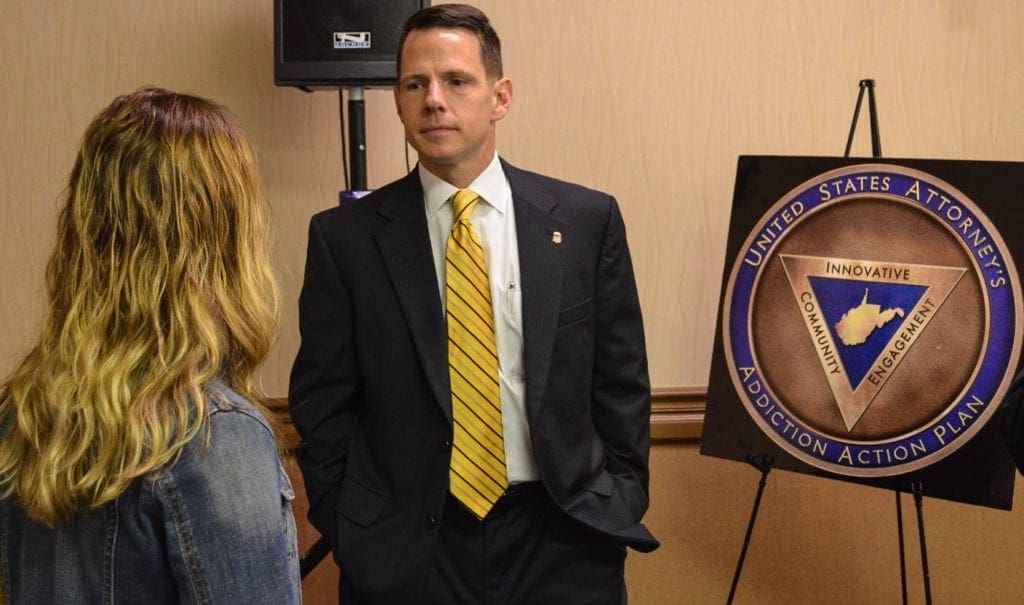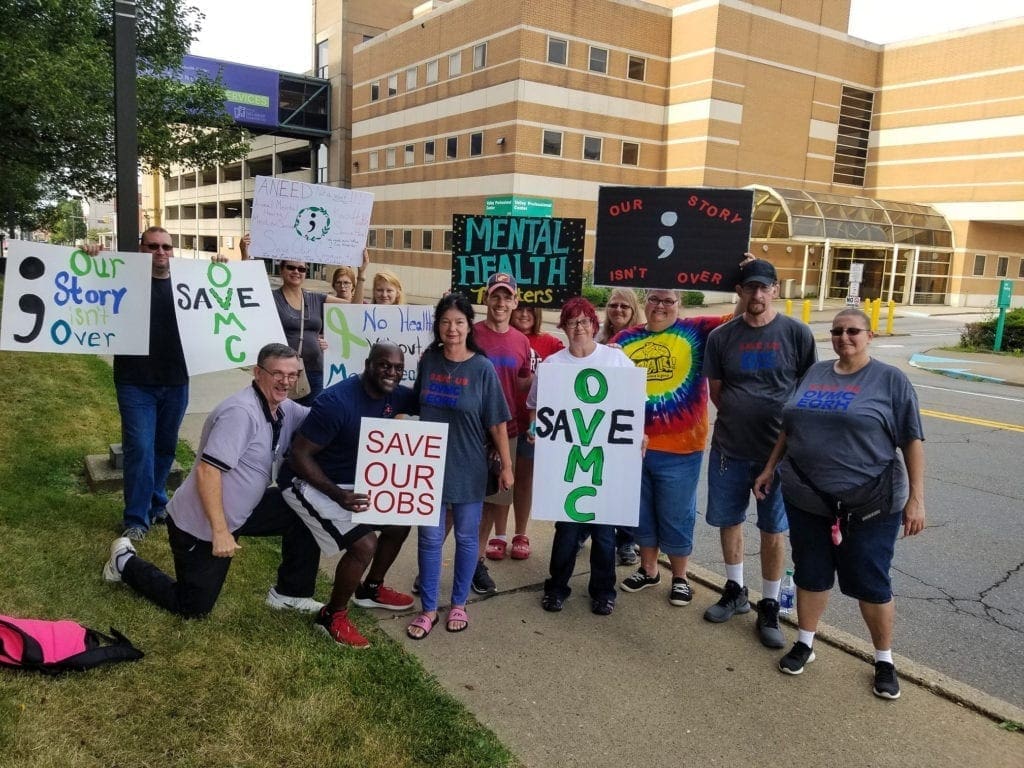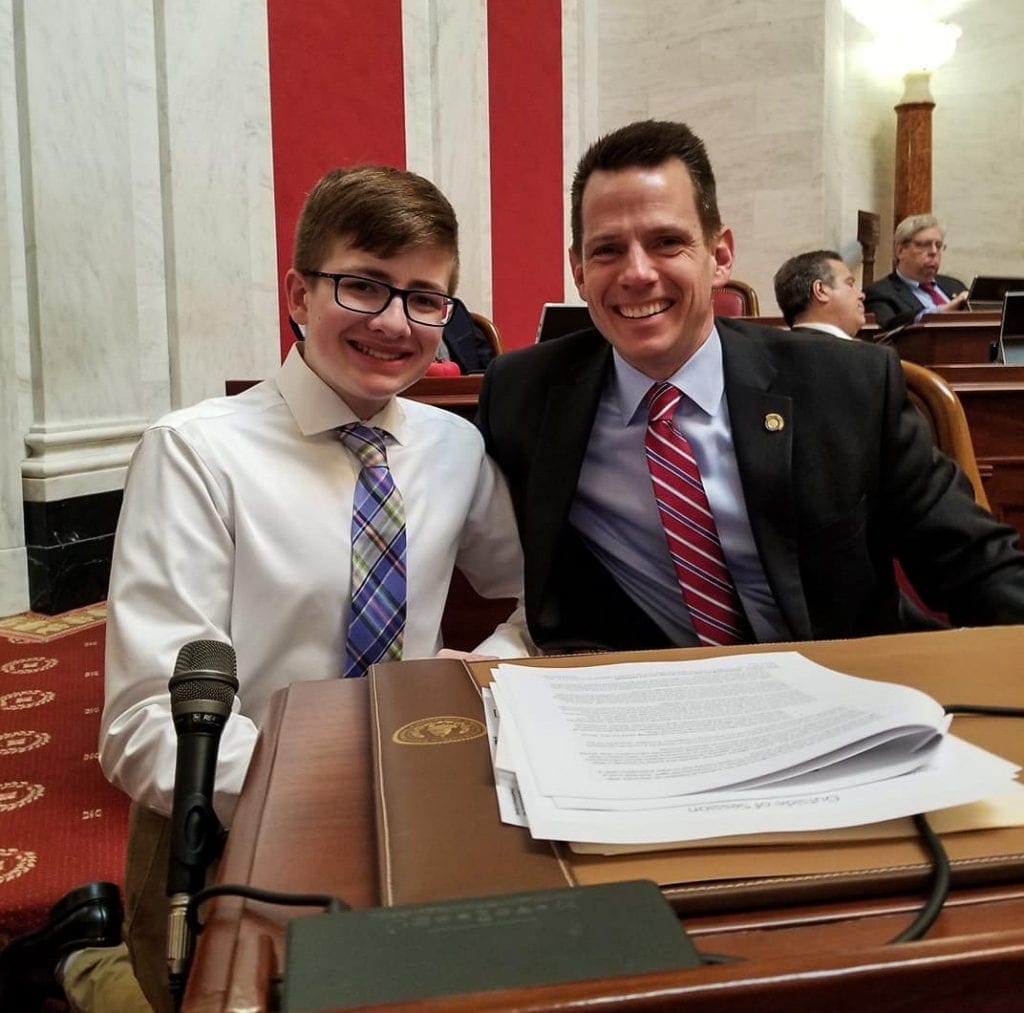He expects election-year “lightning bolt” proposals during the upcoming regular session in Charleston, but W.Va. Sen. Bill Ihlenfeld also believes much of his attention will focus on a state budget that is in dire need of revenue.
Yet again, general revenue collections fell short of expectations during the month of October ($3.2 million), and if that estimate by the Senate Finance Committee holds true, it will mean in the first four months of the current fiscal year projections have fallen $33 million short.
“It’s never a good thing when the Legislature is asked to figure out where those kinds of cuts can be made in a state of West Virginia, and one thing to keep in mind that this isn’t going be just for one year,” Ihlenfeld said. “They want to keep these cuts in place for at least two years, and that’s based on the new revenue projections. I suspect there will be deferred maintenance and a reduction in capital spending, plus I expect a hiring freeze. I’m sure our state agencies will be instructed to do what they are doing, but to do it with less.

“Those budgets may get cut for 3 or 4 percent,” he continued. “As far as the State Police are concerned, I expect them to be asked not to fill critical positions, and not to have as many troopers out on our highways and interstates. That’s not a good thing because a lot of communities in our state only have our troopers to depend on when it comes to law enforcement.”
The market price for steam coal has decreased drastically over the last few months, and that, of course, impacts severance taxes collected from those companies. Couple that decline with a drop in natural gas, and a state dependent on those dollars encounters a struggle.
“The main reasons we are being asked to do this work is because of the roller coaster revenue that we depend on so much in West Virginia,” Ihlenfeld explained. “But that’s the fossil fuel industry, and when the markets for coal and natural gas are not doing well, we as a state do not do well. That puts us as lawmakers in a very tough position.
“It would be nice if our state did not have to rely so heavily on those markets, but we do in West Virginia. I believe we have to start budgeting as if the revenue from the energy industries is the lowest it’s going to be so we know what we can count on,” he said. “That way, if those revenues move higher and we’re flush with cash, we can then be more careful how we spend it in the future.”

Economic diversification. If you are a West Virginian, you have heard those words before this very moment.
“Over and over, it’s been said, but that’s because it’s true. We are not diversified enough in West Virginia. We need to find other industries that can come through for us each and every year instead of it this roller coaster that our state always rides,” the senator said. “With Murray Energy filing for bankruptcy protections, it makes the conversation about the future of coal a very important conversation because of how badly the market for steam is at this time.
“This state really needs to find new funding for the future because coal has been the identity for a very long time,” he said. “The reality is that the coal industry is in serious trouble, and now we know that the Murray mines are in jeopardy. This isn’t fake news or spin. This is the reality of what the mines have left, and Murray is the largest operator of steam coal in our state.”
Most members of the House of Delegates and several senators have launched re-election campaigns, including Senate President Mitch Carmichael and House Speaker Roger Hanshaw.
“I’ll have to see what kind of lightning bolts are thrown at me because 2020 is a big election year for a lot of people in the Legislature,” he continued. “This will be my second regular session, but it will be my first during an election-year cycle, and I am sure there will be a lot of proposals because of politics. It’s not why we are there, but I know that’s coming.”
But in his personal forefront, Ihlenfled, a member of the Senate Finance Committee, plans to have the state budget on the brain.
“We need to get our financial house in order, and I’m sure there will be a lot of bills proposed that won’t go anywhere because the money won’t be there to pay for them,” said the senator. “The big question is, what can the government do in West Virginia to help stimulate the economy without spending money to do it. That’s going to be the trick.
“I am sure there are some things we can do to generate new revenue involving existing industries,” he said. “There are a lot of questions that need answered, and I plan to be right in the middle of those conversations so I can help figure it all out.”

One politically driven push Ihlenfled expects when he reports to Charleston in January involves the business inventory tax, a revenue source that generates millions of dollars.
“That’s an issue I expect, and it will be driven purely out of politics. Eliminating that tax is something I believe all 55 counties are against because it would force the counties to raise residential property taxes on property owners,” Ihlenfled added. “There is big push by a few special interest groups and I am hoping that it proves unsuccessful.”


